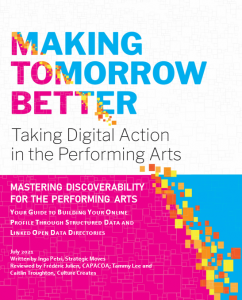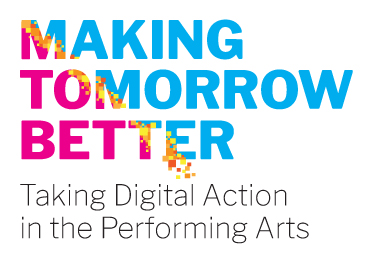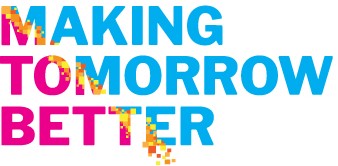Wikidata
Wikidata is the preferred knowledge base for search/answer algorithms and AI-powered tools such as personal virtual assistants because they need access to an unlimited supply of simple and highly structured information. Google relies on many open knowledge bases and content repositories, like the Wikimedia projects, to generate rich results and to populate knowledge cards. Wikimedia projects are by no means the only sources of information and content for Google. But they are accessible, easy and powerful platforms for anyone wishing to participate in them. Google:
- Displays a short summary from Wikipedia
- Pulls basic factual information from Wikidata
- Retrieves photos from Wikimedia Commons
Wikidata entries provide factual and verifiable facts in the form of Items and Statements (characteristics) related to people, organizations and things. It is multi-lingual and collects unique identifiers from numerous databases including those referenced below.
Wikidata is comprised of basic building blocks:
- Item or entity (anyone can create) that are assigned a unique ID
- Property (restricted by a collaborative process)
- Nutcracker composer Tchaikovsky
- Value
- Tchaikovsky (an item) is the value
- Values can also be numbers: date, geo coordinates, link to an image in Wikimedia commons
- Statement: Item + property + value
This table shows the way different tools refer to these items and their plain language translation:
| Knowledge Representation Framework | Referent Entity | Attribute/link | Value |
| Resource Description Framework (RDF) | Subject | Predicate | Object |
| Wikidata statement | Item | Property | Value |
| Plain language | Thing | Relationship | Thing |
Getting started contributing to Wikidata
The best way to edit existing entries and add information or create new ones is to sign up for an account for free and begin to play with the database structure. Wikidata has a community portal and a getting started primer. https://www.wikidata.org/wiki/Wikidata:Community_portal
It is important that content can be verified to make sure it is correct and comes from a reliable source of information, such as a book, scientific publication, or newspaper article. A reference (or source) is used to point to specific sources that back up a claim in Wikidata. A reference can be a link to a URL or an item; for example, a book. Wikidata does not aim to answer the question of whether a statement is correct, but only whether the statement appears in a reference.
Under each statement, there is a space for reference. Providing reference urls along with date retrieved satisfies the requirement to have sources for facts presented. If you are unsure about the meaning of property or a value, click on it to open a new page and read the description.
For a detailed, step-by-step How-to Guide view or download Embracing Wikidata: How to Increase Discoverability for Musicians Online in 2022.
This guide was developed as part of Home Routes / Chemin Chez Nous’ commitment to lift up and support musicians by using digital tools and processes, including advancing their use of Wikidata.
View or download the PDF file on Mastering Discoverability here.

| Users | Any individual, search engines and other tools that use linked open data |
| Purpose | A free and open knowledge base that can be read and edited by both humans and machines. Wikidata acts as central storage for the structured data of its Wikimedia sister projects including Wikipedia, Wikivoyage, Wiktionary, Wikisource, and other, as well as many other services, including search engines like Google. |
| Are you or your organization, venue listed | Search at http://www.wikidata.org |
| How to get in? | Anyone can register for a free account and join this crowdsourcing platform as a contributor and editor. |
Performing arts descriptions are evolving
There are two important Wikidata projects that are contributing to the discoverability of the performing arts. CAPACOA’s Linked Digital Futures Initiative has become a catalyst and contributor to the Bern University of Applied Science’s work:
https://www.wikidata.org/wiki/Wikidata:WikiProject_Performing_arts and
While considerable work has been done to expand on the descriptions available in Wikidata related to the performing arts, these projects, like Wikidata itself, continue to evolve and develop new and more precise descriptions for all elements of the performing arts and performing arts events. It is best to check on your existing listings periodically to ensure all the latest available items are reflected.
Arts Organization: Core statements
The Wikidata Project for Performing Arts continues to evolve and offer additional statements and items that readers can reference in the creation of their Wikidata entries https://www.wikidata.org/wiki/Wikidata:WikiProject_Performing_arts
This example of the National Arts Centre as an organization is a good example of the details Wikidata can include: https://www.wikidata.org/wiki/Q2945952
Suggested Minimum Statements
Of note, drop down menus in Wikidata ensure that the data base integrity is maintained and typos are avoided.
| Instance of | Charitable organization
Performing Arts group – |
| Legal status | Not-for-profit organization |
| Field of work | Performing Arts
Performance Music Workshops etc |
| Located in the administrative territorial entity | Note each item becomes hotlinked, when selecting existing items, ensure the correct entity is selected from the contextual drop down menu. |
| Coordinate location | Look up coordinates in Google Maps or similar and enter here |
| Street address | Provide complete physical address |
| Official website | Always fill this in |
| Business division | Reference a related activity, such as festivals or specific arts disicplines |
| Other items as relevant |
Identifiers
| Facebook ID | Enter the IDs and handles for each of these and any other social media |
| Twitter ID | |
| Instagram user name | |
| VIMEO identifier | |
| Snapchat ID | |
| etc |
Properties for performing arts venues
Note: when a venue is also an organizations two separate items must be created; you must choose which item uses the social media and web urls since they can only be used once. On this page there are up-to-date tables of properties and items that can be used to generate a thorough venue listing in Wikidata. https://www.wikidata.org/wiki/Wikidata:WikiProject_Cultural_venues
Works, Events
Click on this link to see a Wikidata example for the properties related to a play https://www.wikidata.org/wiki/Q25379
Take note, several Canadian collaborations are active in modelling data as well as consolidating several ways of describing works and productions. This work is ongoing as of July 2021 and is expected to continue for some time to come. Therefore, it is important to check back on any listings you create and ensure they are as complete as possible as new categories and more precise statement options are added.
Person: musicians, actors, directors can all be listed in Wikidata
Be as comprehensive as you wish with a personal listing. Note, Wikidata discourages publishing precise birthdates of living persons
Statements
Click on the link to see a quite comprehensive example for a famous director, in this case a movie director: Steven Spielberg https://www.wikidata.org/wiki/Q320588
This table shows the items represented in that listing, upon retrieval in July 2021.
| Instance of | Human |
| Sex or gender | |
| Country of citizenship | |
| Name in native language | |
| Given name | |
| Family name | |
| Date of birth | Do not disclose specific date unless already in the public domain |
| Place of Birth | |
| Father | |
| Mother | |
| Sibling | |
| Spouse | Several can be listed; Include qualifiers start time and end times |
| Child | Several can be listed, Include qualifiers for birth years unless specific dates are already in public domain |
| Number of children | |
| Languages spoken | |
| Occupation | Several can be referenced as applicable
|
| Position held | Several can be listed
Include qualifiers for point in time, replaces [person] and replaced by [person] |
| Member of | List industry associations |
| Educated at | List educational institutes, include qualifier for start and end time |
| Work location | |
| Work period (start) | |
| Ethnic group | |
| Religion | |
| List of works | Here a stage actor can list every play or production they acted in, a director can state all the works they directed and for who. The linking of these pieces of information helps establish a robust linked, open data system for the performing arts. |
| Filmography | Discography for musicians etc |
| Awards received | Include a qualifier for the year and well as the specific work |
| Nominated for | Include a qualifier for the year and well as the specific work |
| Official website | |
| Pronunciation audio | Ensure it is correct – stored in Wikimedia commons and referenced here |
| Has works in the collection | Museums, archives are referenced here |
| Copyright status as a creator | Allows to indicate that works are protected and where |
| Other items as relevant |
Identifiers
| ISNI | |
| VIAF ID | |
| National libraries | Many national libraries will have listings for famous people |
| Directories | Many film databases exist in various countries that you can reference if they list you, your work |
| Wikipedia | Enter the IDs and handles for each of these and any other social media |
| Instagram user name | |
| VIMEO identifier | |
| Facebook ID | |
| Twitter ID |




